5. The Bride (Kill Bill)
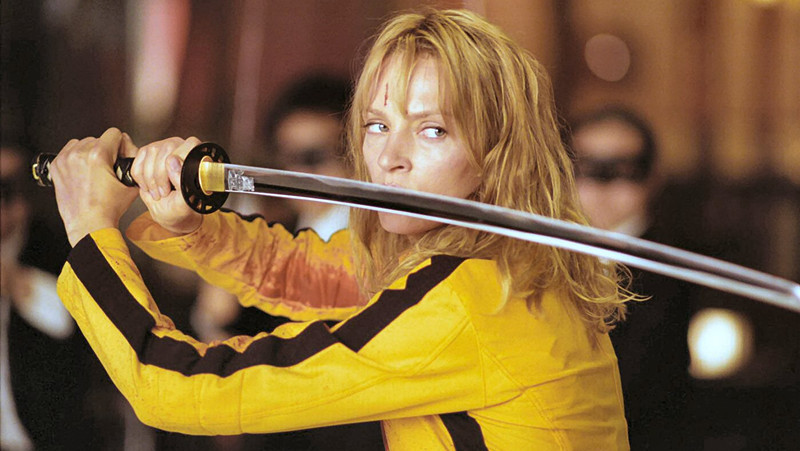
Some like to call Tarantino a “DJ Filmmaker” because of how his films are basically mixes of hundreds of movies from around the world, but they mean it in a good way. If he wasn’t a director, I’m sure he would have been a great critic; his ability to learn and take inspiration from every film he watches is outstanding. The protagonist in the “Kill Bill” movies was written with these concepts in mind. She’s a combination of several characters and styles.
The Bride’s story (and one of the fights in the film) is based on “Lady Snowblood”, a 70s Japanese revenge flick. The Bride wears a yellow suit, similar to the famous suit Bruce Lee wore in “Game of Death”. The main fight between The Bride and hundreds of suited henchman is also based on several Asian movies.
Uma Thurman’s character seems to be carrying out some sort of divine revenge quest. It’s apparent that she shouldn’t be alive after the savage beating she endured and, you know, the “being shot in the head with a shotgun” factor.
The depth of her character lies in the following question: is it really The Bride who carries out all those acts of violence? Or is another person entirely responsible? After all, everyone dear to her was murdered and she spent four years in a coma. I don’t think the pre-massacre Bride is the same human being than the post-massacre one.
It’s difficult to understand her relationship with Bill. She knows he has to die for his horrible actions, but her duality keeps her in doubt. It’s true that the ability to do otherwise is a key element for writing any character that seems real, but in this case, the conflict is much stronger, and two distinct individuals are sharing the same body. Because to this, Thurman’s character is forced to do extra work to achieve her goal.
Most quotable line: “It’s mercy, compassion and forgiveness I lack. Not rationality.”
4. Mia Wallace (Pulp Fiction)
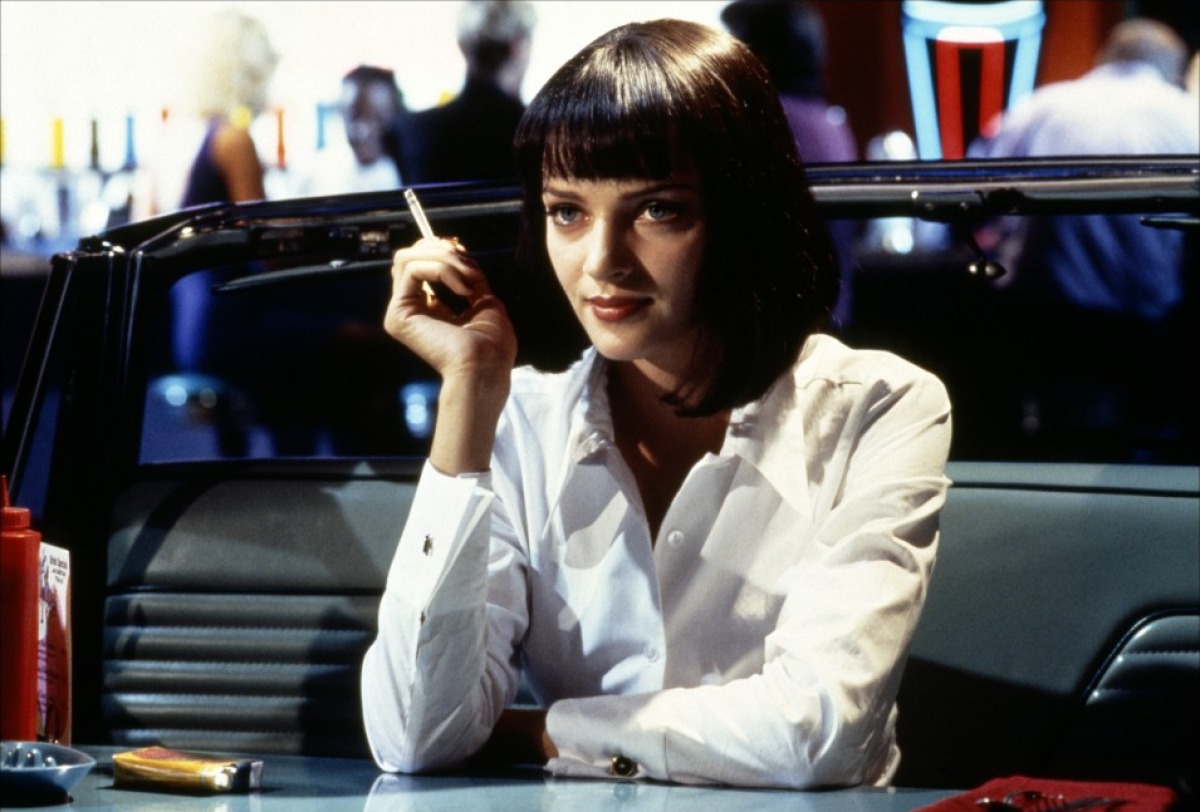
Most of the time, if you want to survive in a Quentin Tarantino movie, you will need to be a spectacular badass. Think Jules Winnfield, Aldo “The Apache”, Hans Landa, Butch Coolidge and Django, among others. Sometimes the situation is too extreme for anyone to live through, but the common denominator of the survivors is their ability to kill.
However, it seems that Mia doesn’t play by the same rules as anyone else in Tarantino’s filmography. She’s a failed TV actress and her husband is a powerful mobster. Her only discernible skills are a charming personality and the ability to speak smoothly with anyone about anything; she clearly has lots of self-confidence.
Along with not being afraid to take risks and her close relationship with a dangerous individual, it’s a miracle that she’s still alive. We don’t know why she married Marsellus Wallace, and it looks like she doesn’t know either.
Vincent and Mia get along because neither of them really aspire to anything. They’re at happily at drift; that’s why their lives are so comically dramatic and entertaining to watch.
Most quotable line: “That’s when you know you’ve found somebody special. When you can just shut the fuck up for a minute and comfortably enjoy the silence.”
3. Vincent Vega (Pulp Fiction)
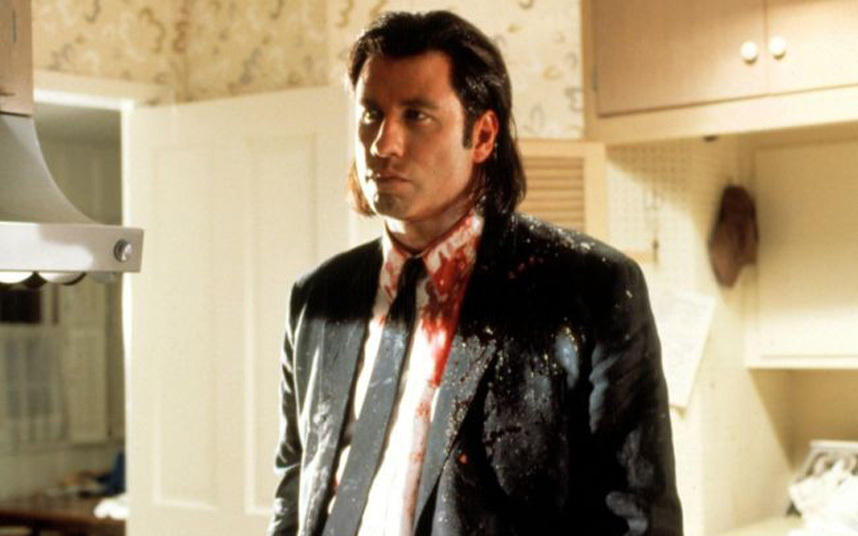
“Pulp Fiction” is unique in many aspects. It does not need to show us the backstories of the characters to get us interested (unless you count the origin of Bruce Willis dad’s watch as back story). Their personalities are enough to convey motivations, emotion and drama.
Vincent’s life seems aimless. He works for a major crime boss and is constantly doing jobs for him. When he’s not working, he visits a drug dealer and makes a few purchases.
John Travolta’s character doesn’t have friends aside from his partner in crime, Jules Winnfield. Vincent remains apathetic to the reality around him; when he experiences a sort of lifesaving miracle firsthand, he takes it as a coincidence. After he accidentally shoots a guy in the head, he doesn’t feel any kind of remorse. Vincent’s regular consumption of drugs seems to indicate that he wants to get away from real life, that he prefers the artificial bliss and numbness that heroin produces.
This character reminds me of the protagonist in Albert Camus’s famous novel “The Stranger”. Neither of them really care about the events in their life; they just go through the motions without any desire to transcend their daily routines, and they don’t seem to desire friendship or other relationships.
Jules is the complete opposite; he has an opinion about everything, he’s either enraged or very happy, he likes theatricality, and he has a heavy presence in his environment.
Vincent is so well-written because most of the aspects of his personality are delivered by the actor’s expressions and actions, rather than lots of artificial dialogue. Like in real life, people don’t just go around telling people their specific likes and dislikes in every situation, which happens in many lazy films.
Most quotable line: “I got a threshold, Jules. I got a threshold for the abuse that I will take. Now, right now, I’m a fuckin’ race car, right, and you got me the red. And I’m just sayin’, I’m just sayin’ that it’s fuckin’ dangerous to have a race car in the fuckin’ red. That’s all. I could blow.”
2. Shosanna Dreyfus (Inglourious Basterds)
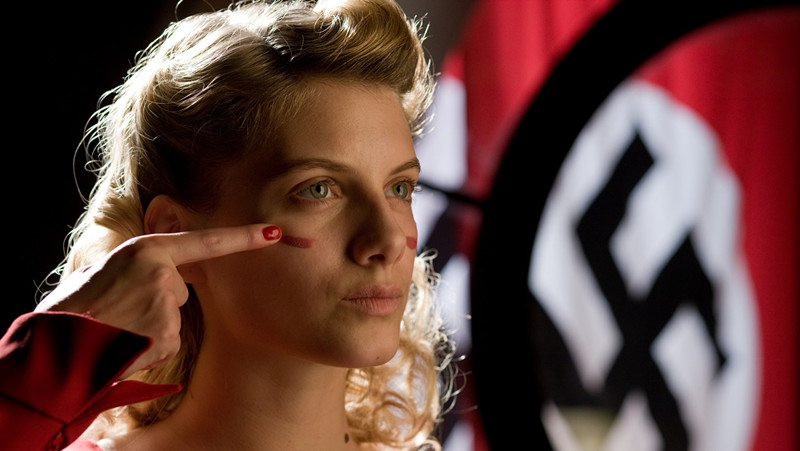
In the opening scene of “Inglourious Basterds”, Tarantino introduced two of the best characters he has written so far: Col. Hans Landa and Shosanna Dreyfus. The whole film then revolves around them as their lives surprisingly intertwine.
Shosanna is hidden underneath the wooden floor of a friend’s house, along with her entire Jewish family. She quietly watches through the holes between the floorboards as an eloquent Nazi Colonel calmly interrogates their brave ally.
The conversation switches from French to English, leaving the family unaware of their approaching fate. The Nazi starts to leave as though his business is finished, when suddenly a heavily armed squadron storms the small living room. They point their guns down and bullets start to rain over the unlucky Jewish family. Dreyfus is able to escape into the countryside, drenched in the blood of her slaughtered family. She hears a manly scream: “Au revoir, Shosanna!” as she runs toward a new life.
This simple introduction to her character is enough to give Shosanna a lifelong goal, which she never dreamed to accomplish until favorable circumstances suddenly gave her a once in a lifetime chance to fulfill her revenge.
Shosanna is an attractive character because she’s active in a very philosophical way. She didn’t allow her horrible situation to discourage her forever; she chose to instead move on, and never doubted for a second when the unique opportunity to restore justice presented itself. She acts exactly how famous philosopher Jean Paul Sartre would have advised of her, making use of the individual freedom every human must enjoy and suffer.
Most quotable line: “My name is Shosanna Dreyfus, and THIS is the face of Jewish vengeance!”
1. Colonel Hans Landa (Inglourious Basterds)
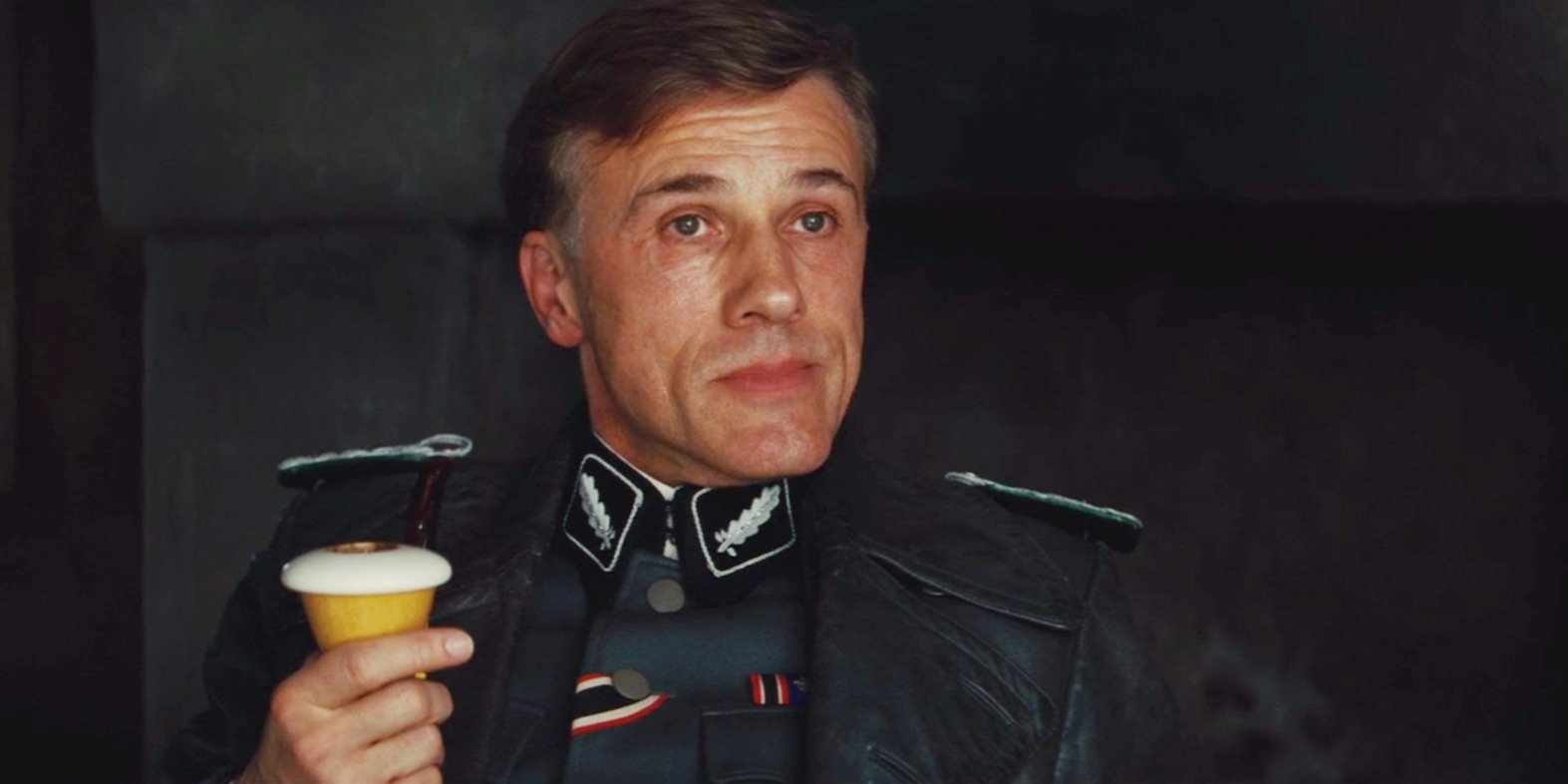
I’ve said before that this is the best antagonist ever shown on screen, and it’s very easy to stand (at least for now) behind that claim. A character with so much skill for being an asshole is something to admire.
Colonel Hans Landa’s presence in the opening sequence is enough to push the intensity level up to infinity. He explains his general dislike for Jews, manipulates the poor French farmer to tears, commands his soldiers to murder an entire family with a simple gesture, and then spares Shosanna’s life simply for his amusement.
Through the rest of the film, he acts like an evil Sherlock Holmes. He knows multiple languages, is incredibly clever, and his capacity for murder is equal to his theatricality.
His powerful personality is also unmatched by any other character, which is one of the reasons he’s so hard to stop. His confidence is a clear expression of the overwhelming power the Nazis had. When Landa finally surrenders, his tenacity fades; fear and disbelief dominate him and the war is won.
Most quotable line: [giddy] “Oooh, that’s a bingo!”
Author Bio: Juan studies philosophy. He love films and music and plans to go to film school with his cat.